- Hey Dullblog Online Housekeeping Note - May 6, 2022
- Beatles in the 1970s: Melting and Crying - April 13, 2022
- The Beatles, “Let It Be,” and “Get Back”: “Trying to Deceive”? - October 22, 2021
NANCY CARR * Usually I can take or leave alternative history experiments, but Geoffrey Himes’ “What If The Beatles Hadn’t Broken Up?” in Paste is so loony I had to bring it back to the Dullblog community for commentary. [For great alternate Beatles history, see Mark Shipper’s Paperback Writer or HD’s own Michael Gerber’s Life After Death for Beginners.]
Part—but only part—of the problem is that Himes’ writing is serviceable at best, so the piece comes off as mediocre fan fiction. The much larger problems are with the motivation and plausibility of the Beatles as they appear in this mirror universe. Here’s the Cliffs Notes version, for those who don’t want to read all five pages of Himes’ construction:
Ringo as Machiavelli
In early 1970 Ringo phones John, and sets up a long face-to-face conversation in a pub (Yoko is present but silent). Here’s the important part (Ringo is the first speaker):
“If you let Paul break up The Beatles,” he said, “you’re conceding the point that he’s so important that The Beatles can’t go on without him. You’re agreeing with him that the rest of us can’t be The Beatles if he’s not there.” John’s head snapped around. This dart had found its bull’s eye. “Fuck Paul,” John snarled. “We don’t need him. We can be The Beatles without his little ditties.” He didn’t notice that Yoko’s shoulders slumped at this turnabout, and Ringo wasn’t about to call attention to her reaction.Here on the first page you have the two main problems with Himes’ version. First, you have to buy Ringo as a mastermind able to convince John and George to get along, and able to talk John into participating in the Beatles despite Yoko’s discomfort. (Later in the story he gets around Allen Klein, too). Second, you have to agree that a version of the band without Paul McCartney in it could be, in any meaningful sense, the Beatles.
When alternative history becomes lazy storytelling
If you let go of needing to see the story as at all believable, there are enjoyable aspects to it: it would have been great to see John, George, and Ringo play together live, and a blast to see Paul collaborate with the Meters. But there’s so little rigor to this alternative history, so little engagement with the bedrock realities of the Beatles’ personalities and their situations in the early 1970s, that it left me more annoyed than entertained.
It’s true that John, George, and Ringo apparently did consider asking Klaus Voorman to form a band with them, but the name mooted for the group was the Ladders—showing that they had the good sense to recognize that this different group would require a new name. And it’s true that Ringo was always the Beatle all the ex-band members could talk to: there’s a good reason Ringo is the only post-Beatles album on which all four play. But Ringo as a far-seeing, compromise-forging diplomat whose skills leave Henry Clay, Henry Kissinger, and Hilary Clinton gasping in the dust? Sorry, no sale.
The Beatles knew better
Reading Himes’ story made me recognize how glad I am that, post-breakup, none of the Beatles ever tried forming a different band with the same name. It took all four of them to make the group, and despite all the sniping, and the Lennon/McCartney meltdown, they never forgot that.
Mark Hertsgaard, in A Day in the Life: The Music and Artistry of the Beatles (1995) expresses this beautifully:
“The magic of the Beatles, as they themselves well knew, was something bigger than the four of them. Talented as they each were, there was an alchemy in the way they came together that made two plus two equal not four but forty . . . . Indeed, the Beatles themselves sometimes said they felt like four aspects of the same person. ‘We’re individuals, but we make up together The Mates, which is one person,’ McCartney explained. ‘We all add something different to the whole.’ To an amazing degree, their collaboration canceled out the weaknesses while magnifying the strengths of each member; collectively, they projected an irresistible personal charisma. ‘If you put together all the personalities of the Beatles, it worked perfectly,’ said George Harrison. ‘It was magic.’ And the charisma carried over into the art; the Beatles’ personal chemistry was indivisible from their musical creativity. ‘Beatlemusic is when we all get together,’ said John. ‘The Beatles just go into a studio, and IT happens!” (p. 135)
Three former Beatles plus a different bass player doesn’t equal the Beatles, and it’s to Lennon’s, Harrison’s, and Starr’s credit that they recognized this. It can be fun and intriguing to imagine different collaborations among them after the breakup, or to assemble playlists representing what might have been if the Beatles had released music collectively even if they weren’t playing together, but I’m deeply grateful that the four of them let the “Beatles” banner lie if it could no longer wave over them assembled together, making magic.

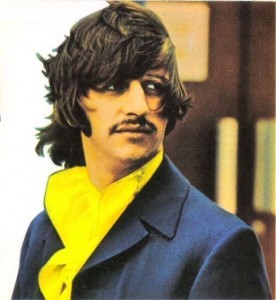


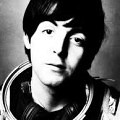
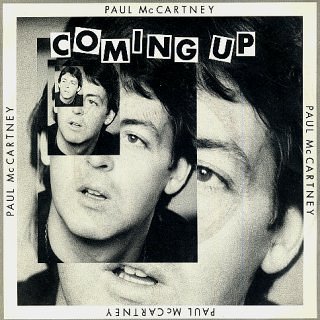

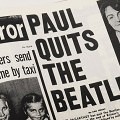
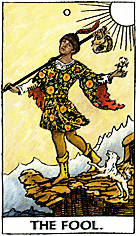
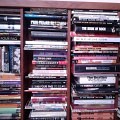
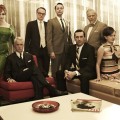

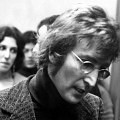
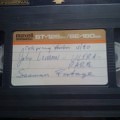
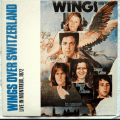
there was a story published in ‘oui’ magazine, published in march 1978 , entitled ‘the beatles’ not-so-magical mystery tour’, which detailed a beatles reunion before 80,000 fans, held in new orleans superdome, brought on by the abduction of the individual ex-beatles whose families were threatened with bodily harm if the reunion didn’t take place. the twist in the story was that the kidnappings (including ringo’s) were all orchestrated by ringo himself, because he missed playing with the others.
that’s one way to do it!
I want to publish a pornographic magazine for guys who can’t get laid, and title it “Non”.
I’m THIS close to mocking up that cover for you, J.R. 🙂
The cartoon-Beatles “Walk Hard: The Dewey Cox Story” dialogue had me in stitches! So cringeworthy and embarrassing it made me ashamed to be alive.
Can you IMAGINE George Harrison EVER saying, “Bless you, Ringo, you’re still the same bounder I knew in Liverpool!”
Thanks for the Life After Death shout-out, Nancy, but looking back on that book I can’t help but feel the alternative history portion of it was what I was the least satisfied with. I liked some of the prose, which I slaved over, and some of the comic lines and scenarios, which show command of craft.
But in general I found myself in a terrible bind: what my instincts told me was likely to have happened had Lennon survived—the type of person he would’ve become, and what he would’ve done—was so outrageous that no reader would’ve ever come along with me on that ride. It required a kind of Lennon mind-melding that was difficult enough for me after years of research and rewriting; your typical Beatles fan doesn’t want that, and wouldn’t have bought it (in any sense of that term). So I retreated into joke-making, and felt rather cowardly for doing so.
I think a more successful approach would’ve been a total balls-out ride, “Tom Jones” in the 60s-70s-80s, something picaresque which was just PACKED with absurd and scandalous incident, libelling the dead outrageously and all in good fun. Had I been my own editor, that’s where I would’ve directed myself, because those were the parts that people enjoyed most and where I was having the most fun.
But because I felt some obligation to be forensic about some aspects–because I went into the project wanting to reveal, say, certain dynamics between the real John and the real Paul–I felt terribly restricted by the public perceptions of all the people. Not their true natures, I felt I eventually understood those passably well, but the strength of what strangers feel about them. So in the end, to me, Life After Death didn’t gel either as a standalone comic novel or as a happy piece of Beatles fluff, which were my goals for it. If I could un-write the book and re-allocate that time to another project, I probably would–I am always pleased when people tell me they enjoy it, of course, but for me it was a multi-year souffle that never rose. The material really lends itself better to a TV series, not a comic novel. One needs the beauty and efficiency of images, with the humor happening in a Felliniesque way.
Haven’t read Shipper, but Devin says it’s good and I trust his taste on such matters. Yours too. 🙂 Perhaps someday when I feel less scorched by my own attempt at Beatles alt-history, I’ll read his (by all accounts) much better one.
Michael, I think LADFB succeeds because you blend the comic and serious, but mostly because you don’t dodge what’s hard about writing about the Beatles. You do what I fault Himes for not doing — engage “with the bedrock realities of the Beatles’ personalities and their situations.” I really like “Paperback Writer,” and I think you would as well, but your novel displays a deeper sense of empathy with the Beatles and a more nuanced picture of their relationships with each other, in my opinion. If you want to read an alt-Beatles novel that gets bogged down in the darkness (sounds like fun, right?), try Larry Kirwin’s “LIverpool Fantasy.”
Stories like Himes’ make me realize all the more how hard it is to write alt fiction worth reading. Once a writer starts treating characters based on real people as blanks that can be made to say or do anything, that writer has dropped the thread.
Thanks, Nancy. That’s what I tried to do, perhaps unwisely because–as the clip JR just posted shows–Beatle jokes are fun and easy.
But the reason they’re so fun and easy is exactly why doing Beatle alt-history is so difficult; the image J/P/G/R presented to the public–which is still basically operational, 50 years later (showing its basic truthfulness, a tremendous commitment to PR, people’s preference for simple images over complex realities, or–my belief–some of all of these)–is very difficult to shake, even in the face of lots of evidence. John is the smart, cynical one…but what happens if you take other, non-cynical aspects of his character and build those out? The audience doesn’t believe it, and argument is not possible. So even though (for example) John post-Yoko displays infinitely more credulity than streetwisdom, that’s not possible to put over. So then you’re stuck mimicking the media image, which is precisely what I didn’t want to do and was not interested in, for lots of reasons. It would’ve been fun and easy to write a Paul that was saccharine and pot-addled–but that’s not who I think Paul was/is, and what’s the point of that? Mere joke-making.
I once sent the MS to a big mystery agent in NYC, who returned it thusly: “He doesn’t sound British.” To which I said, “One of the things that people consistently remarked upon regarding Lennon in the Dakota years was how he seemed to mimic American idioms and culture.” Telling Mr. Agent “Fuck you, Kojak,” cuts no ice.
I don’t think I’ll read the Kirwin, thanks; the reason I didn’t continue on with the series is that book 2 was shaping up to be a prequel involving the Krays, and I felt that while addressing the Beatlemania-era Beatles was good and worthwhile territory–I am fascinated by how that sausage got made, and personally don’t think that detracts from its wonderfulness one bit–readers would balk at that.
as a prolific Beatles fan fic writer myself, I would encourage you to write what is in your head even if you think your readers won’t follow you. For one thing, it could be the thing that helps take fan fiction in general to new places. Fan fic can get pretty stale. Secondly, fan fic is written for one’s self, not a publishing entity. The only constraints is the rules of the forum in which it is posted and time and efforts into writing it.
I myself have my haters and detractors who waste their times creating mulitple journals just for dismissing my fics and insulting me. I don’t let that stop me from doing what I love. I can ignore them easily.
I would suggest you write your John as you see him. How bad can he be?
Thanks for the encouragement, Kathryn! It is much appreciated.
I think this is the best and funniest alternative-history portrayal of The Beatles, featuring Paul Rudd as John Lennon, Jack Black as Paul McCartney, Justin Long as George Harrison, and Jason Schwartzman as Ringo Starr:
http://www.youtube.com/watch?v=6frgnqTo1eM
The Maharishi character cracked me up: “Beatles! Please stop fighting here in India!”
It can be fun and intriguing to imagine different collaborations among them after the breakup, or to assemble playlists representing what might have been if the Beatles had released music collectively even if they weren’t playing together, but I’m deeply grateful that the four of them let the “Beatles” banner lie if it could no longer wave over them assembled together, making magic.
I agree… I never cared for groups that changed personnel constantly. It gave me the impression they didn’t take each other seriously, if they could be replaced so easily. I think that explains my love of the Marx brothers, they stuck together, even without Zeppo.
The one thing I’ll say for this otherwise highly unlikely (to be charitable) what-if scenario is that it does pinpoint a key issue: the individual Beatles’ desire to get out from under each other’s thumbs.
Up to the time when they stopped touring in 1966, John, Paul, George and Ringo had very little time apart from each other, and although they had more time to themselves after “Sgt. Pepper,” being a Beatle was still a full time job. As early as the White Album, everything I’ve ever read suggests they were getting a little tired of each other, and the predefined roles they had come to play within the band. Although by the end of 1968 John, Paul, and George had released solo projects, they were mostly throwaway type things and could only be marginally satisfying (Paul scored the film “The Family Way,” George scored the film “Wonderwall,” and John did “Two Virgins” with Yoko).
The one thing I think this scenario does get right, even if it’s far too late in the game for them to be getting that right, is that letting them express themselves as individuals while still loosely within a band context might have postponed or prevented the break-up altogether.
But the fact remains it’s far too late in the game. Many who have played this game take the assumption that the Fabs resolved their differences in 1970, and everything was good and filled with sunshine and rainbows for the next ten years or more. To me, that is not only wishful thinking, it is completely unrealistic based on the events from the time of Brian Epstein’s death onward. This scenario is trying to reconcile a marriage that has fallen apart. That’s the main reason why I feel it wouldn’t work, aside from the logical inconsistencies that place Ringo at the center of events as already discussed in this entry.